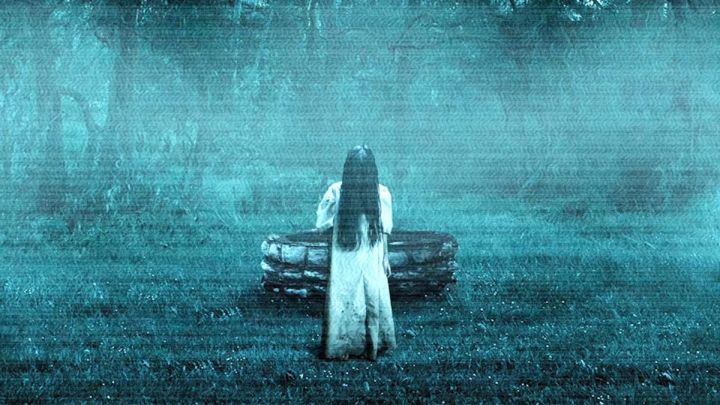When you really think about it, few things feel more dated than the central conceit of The Ring. This is, after all, a movie about a VHS tape that curses everyone who watches it. VHS is a relic of the past, and we’ve had a number of subsequent home-viewing revolutions since it left us.
Even as the VHS tape plot device feels less and less relevant, though, The Ring doesn’t actually lose any of its inherent power. It’s still just as scary now as it was when it was released, and is the rare horror film and American remake that stands the test of time.
The Ring shows us why style matters

If you remember the plot of The Ring, you likely remember something like this: A newspaper reporter in Seattle discovers an urban legend that suggests that watching a certain videotape will leave you with just seven days to live. She’s skeptical, at least until four teenagers all die after watching the movie together. She then tracks the tape down herself and watches it, leaving her with just a week to unravel the mysteries behind it.
All of that is fairly straightforward, but it doesn’t necessarily sound all that scary. Thankfully, director Gore Verbinski has never let the way things sound get in the way of his own imagination. Of course, The Ring isn’t an entirely original creation. It’s a remake of Ringu, a Japanese horror film that has a very similar conceit at its center. Ringu is also plenty scary, but Verbinski deserves a lot of credit for the ways he made The Ring feel different from its predecessor.
For starters, Verbinski decided to coat the whole movie in a thick layer of green. The Ring was one of many movies to take this approach, likely thanks to the influence of The Matrix. In the case of The Ring, though, this hue gives the entire film a feeling of unreality, as if what we’re watching is some sort of warped document of past events.

The green hue of the whole thing is just one of many ways that Verbinski keeps his audience on edge, though. The other, of course, is through the images in the tape itself, which are some of the eeriest in the history of film. The entire tape, which is shot in black and white, is a fragmented document of the powers of a young girl named Samara, who is the one responsible for all of the death surrounding the tape.
The images on the tape don’t seem all that terrifying individually. And yet, because of some jolty editing and Samara herself, who has hair covering her entire face, the images feel exactly the right level of disturbing. In a way, it seems to make sense that they would curse anyone who watched them.
Naomi Watts is a great horror heroine

Verbinski’s style iteslf may have been more than enough to make The Ring great, but Naomi Watts is the caliber of actress that can make a horror movie stay with you. Her performance in The Ring is not showy in the way Ari Aster has asked Toni Collette and Florence Pugh to show off their chops in the A24 horror movies Hereditary and Midsommar, respectively. Nevertheless, Watts is utterly convincing from moment one, and she seems to be a real person inhabiting a more surreal, off-kilter version of our reality.
That grounding makes the scares, when they come, feel all the more sinister. After all, we’ve known people like Rachel, and if this is happening to her, then there’s nothing stopping it from happening to us as well. No great actor can save a bad movie, but thanks to Watts, The Ring always feels like it’s in great hands.
Brian Cox deserves a shout-out for a similar reason. Cox has been elevating projects for decades, and The Ring is no different. He only shows up for a few key scenes, but he’s entirely chilling in every moment. If Watts exists to make The Ring feel grounded in reality, then Cox is there to do precisely the opposite: He heightens the tension, and the horrific abuse he piled onto Samara only heightens the supernatural horror we’ve already seen.
The Ring condemns you for daring to watch it
Above and beyond Verbinski’s broad aesthetic choices and a few excellent bits of casting, though, The Ring also works because of the below-the-line teams that render its world a reality. Dead bodies are always a little bit scary, but in The Ring, they are rendered as truly horrific. The teen girls that we meet in the film’s opening sequence are normal teenagers, which means that their liveliness is a huge part of their charm. When their bodies are discovered, they’ve been horribly disfigured, almost as though they drowned. Verbinski and his team made the extra commitment to portray death itself in horrific ways that most movies only imply. It’s not just scary that they died, but their bodies themselves are objects of fear.
The most brilliant element of design, though, is Samara herself. If you remember one thing about The Ring, it’s likely the terrifying child that seems to emerge from a television. It’s the kind of thing that could be scary or silly, but Verbinski’s decision to keep Samara in black and white against the green backdrops that he’s already established make her emergence feel like the ultimate violation.

As we see when Samara takes out her victims, they themselves are transfixed by what they are witnessing. It doesn’t mesh with their understanding of how the world works, but it’s also happening right in front of them. Their brain has to reconcile these two facts, even as it also has to deal with the immediate reality that the situation they are now faced with is life-threatening.
Through Samara, and the tape that she emerges from, The Ring condemns the very act of watching. It seems to suggest that, if people could just muster up the willpower to look away, the whole thing would be null and void. In condemning the people who watch the tape, The Ring is also damning those who watch the movie, which, even once you get past the design elements, may be the scariest thing about it.
The Ring is currently streaming on Paramount+.



